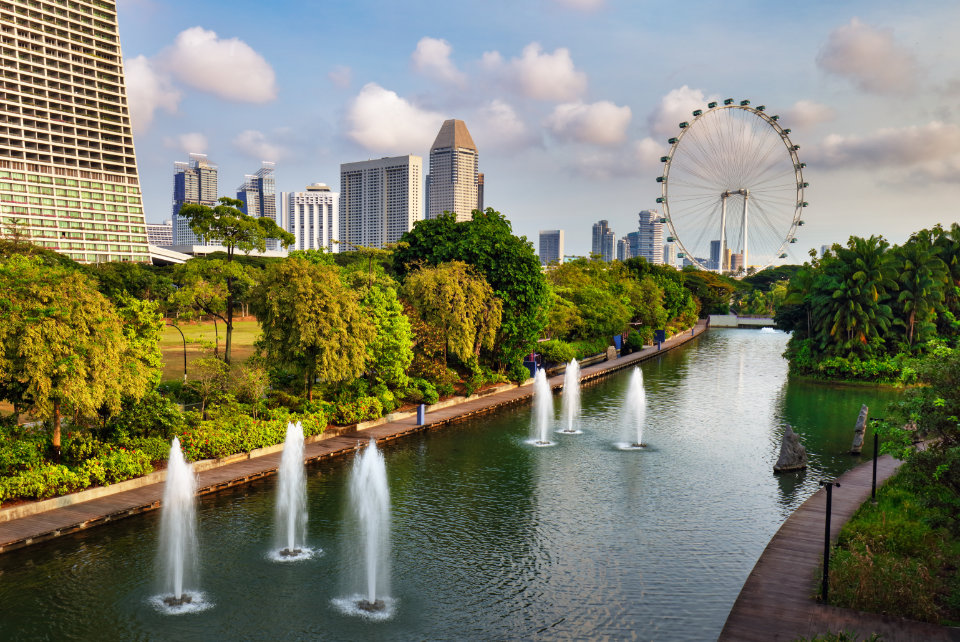In a recent report highlighted by TODAY, Singapore witnessed a drop of five spots in the global happiness ranking, yet it remains the frontrunner in Asia. This news brings to the forefront the discussion on happiness and well-being, emphasising the need for activities that foster both physical and mental health to aid in staying happy.
Among various activities, running stands out as a powerful tool to boost happiness. We explore how integrating running into our lives can be a stepping stone towards staying happy, particularly in the context of Singapore’s bustling urban environment.
Table of Contents
Staying Happy: The Connection Between Running and Happiness
Running is not just a physical activity; it’s a catalyst for mental well-being. The “runner’s high,” a term commonly used to describe a rush of endorphins post-exercise, illustrates the immediate mood-lifting effects of running.
However, the benefits extend far beyond this temporary state. Regular running has been associated with long-term improvements in mood, reduced stress levels, and even a decrease in symptoms of depression and anxiety.
For a city-state like Singapore, where the pace of life is fast and stress levels are high, running offers a simple yet effective escape route towards happiness.
Recent studies underscore the link between regular physical activity and improved mental health. According to a report by the Lancet Psychiatry journal, individuals who exercise regularly have 43.2% fewer days of poor mental health compared to those who don’t exercise.
Running, as a form of exercise, is particularly beneficial due to its ability to release endorphins, often referred to as the body’s natural mood lifters.
Singapore’s Landscape: A Runner’s Paradise
Singapore’s commitment to green spaces and public parks makes it an ideal landscape for runners. The city’s park connectors, such as the Eastern Coastal Loop and the Southern Ridges, provide scenic routes that not only challenge the body but also soothe the mind.

Photo Credit: 123RF
Running amidst nature, away from the hustle and bustle of city life, allows individuals to disconnect, reflect, and find peace. This interaction with nature is a key component of staying happy, as it reconnects us with the environment and ourselves.
The National Parks Board of Singapore has been instrumental in developing green spaces that are conducive to outdoor activities. According to their 2022/23 sustainability report, over 94% of residents now live within a 10-minute walk of a park.
This accessibility encourages physical activity, including running, which is vital for mental and physical health.
Running Communities: The Social Aspect of Happiness
Happiness is also found in connections with others. Singapore’s vibrant running community offers a sense of belonging and support that is essential for mental well-being. Race platform like the Spacebib not only provide motivation and encouragement but also foster friendships and social interactions outside the digital world.
Participating in running events, marathons, and group runs promotes a shared experience that can lead to lasting happiness through camaraderie and shared goals.
Experts believe in the power of community for enhancing mental well-being. Dr. John Ratey, an associate clinical professor of psychiatry at Harvard Medical School, emphasises the importance of social connections made through group exercise in improving mental health.
Overcoming Obstacles to Running
Despite the benefits, starting a running habit can be daunting for many. Concerns over time, physical ability, and even air quality on certain days may deter potential runners. However, the key to overcoming these obstacles lies in setting realistic goals and gradually integrating running into one’s lifestyle.

Photo Credit: 123RF
Even short, 10-minute runs can significantly impact one’s mood and overall well-being. Furthermore, Singapore’s investment in covered walkways and indoor running tracks ensures that the weather and air quality are less of a barrier to staying active.
The World Health Organisation recommends adults aged 18-64 should engage in at least 150 minutes of moderate-intensity aerobic physical activity throughout the week. Yet, barriers like time constraints and physical limitations can hinder this.
Adaptive strategies, such as interval training, virtual races, and indoor running options, provide alternatives that can fit into various lifestyles and physical capabilities, ensuring the benefits of running are accessible to more people.
Running Towards a Happier Singapore
The Happiness Research Institute’s 2020 World Happiness Report suggests that physical activity, community involvement, and access to green spaces are significant contributors to overall happiness in urban environments.
Singapore’s efforts to combine these elements through its park connector network and running events could play a crucial role in enhancing the city-state’s happiness index.
The fall in happiness rankings serves as a wake-up call for individuals and communities to prioritise well-being. In this pursuit, running emerges not just as a sport but as a holistic approach to life. It encapsulates the essence of staying happy – through physical health, mental clarity, connection with nature, and social bonds.
For Singaporeans, the path to happiness might just be a run away. Embracing running as part of daily life can lead to a happier, healthier Singapore, where the pursuit of happiness is not just an individual endeavor but a collective journey.
So, let’s take to the streets, parks, and trails, and rediscover the joy of running, for the sake of our happiness and that of our city-state!
What are simple daily habits that contribute to staying happy?
Daily habits such as practicing gratitude, engaging in physical activity, spending time in nature, and maintaining social connections can significantly contribute to overall happiness. Incorporating mindfulness practices and dedicating time to hobbies or interests are also effective strategies.
How does diet impact happiness?
A balanced diet rich in fruits, vegetables, whole grains, and lean proteins can have a positive effect on your mood and energy levels. Certain foods, like those high in omega-3 fatty acids and probiotics, have been linked to improved brain health and a decrease in symptoms of depression.
Can staying happy improve physical health?
Yes, happiness and a positive outlook on life can lead to better physical health. Happy individuals tend to experience lower stress levels, reduced risk of chronic diseases, stronger immune function, and even a longer life expectancy.
What role does sleep play in staying happy?
Quality sleep is crucial for maintaining emotional and psychological health. Poor sleep can increase irritability, stress, and depression symptoms, while adequate sleep helps improve mood, cognitive function, and overall well-being.
Does social media impact happiness?
Social media can play a role in maintaining connections, yet excessive use may contribute to feelings of inadequacy, anxiety, and depression, impacting one’s journey to staying happy. To foster happiness, it’s important to balance online interactions with face-to-face relationships and establish boundaries on social media usage, thereby mitigating its potential negative effects on one’s state of happiness.




